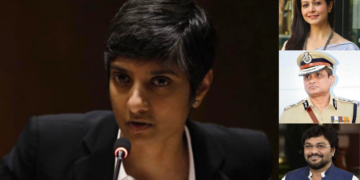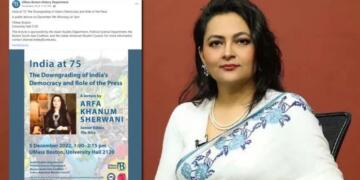Prime Minister Narendra Modi’s diplomatic strategy—sending multiparty parliamentary delegations abroad to counter negative narratives about India and present its geopolitical position—has evolved into a major foreign policy triumph. The initiative underscores a unique model of outreach: deploying members from across India’s political spectrum to engage with foreign governments, think tanks, diaspora communities, and media houses. But the delegation success isn’t limited to India’s foreign standing—it has also reshaped domestic political perceptions, exposing rifts and losses for the Congress party, which has struggled to align with this initiative.
At its core, Modi’s delegation strategy sought to internationalize India’s official narrative without relying solely on diplomats or bureaucrats. By including Members of Parliament from various parties, the government projected national consensus and bipartisan unity on issues like Cross-border terrorism and Pakistan’s role, India’s global economic ambitions and clarifying positions on issues like Kashmir, CAA, and human rights.
The strategic involvement of opposition MPs—particularly figures with global credibility like Shashi Tharoor—helped convey that India’s messaging was not limited to the ruling BJP’s perspective. The presence of articulate and globally recognized figures enhanced India’s credibility in foreign capitals.
Diplomatic Wins: From Colombia to G20 Stage
The impact of these delegations has been measurable as Colombia retracted a previously controversial statement seen as critical of India, following direct diplomatic outreach and quiet back-channel persuasion by visiting Indian MPs. India also successfully gathered support at the G20 Summit under its presidency in 2023, navigating divisions between the West and Russia-China bloc, in part due to consistent outreach and personal diplomacy.
Countries in the Gulf and Latin America, once cautious about India’s domestic policies, have shown renewed bilateral enthusiasm, hosting Indian delegations and strengthening trade and cultural ties.
Congress’s Misstep: Political Fallout from Opting Out
However, not all political parties participated with the same commitment. The Indian National Congress, despite having globally respected MPs like Shashi Tharoor, failed to fully back the initiative. The party leadership reportedly discouraged MPs from joining what it viewed as a BJP-led narrative exercise.
This stance backfired on multiple levels. Shashi Tharoor’s participation, seen as defiance by some in Congress, exposed internal disagreements over the party’s foreign policy strategy. While Tharoor earned praise across party lines, Congress appeared isolated and uncertain.
The party’s refusal to associate with a unified national foreign policy and these delegation efforts was portrayed by the BJP as unpatriotic or indifferent to India’s global standing. In contrast, regional parties and independents like Asaduddin Owaisi, some of whom are often critical of the Modi government, willingly joined delegations, further sidelining Congress. This has also likely hurt Congress’s credibility among overseas Indian voters.
While the BJP projected statesmanship, Congress missed a rare opportunity to reframe its global image, particularly at a time when Indian politics is closely followed internationally.
Domestic and International Implications
Internationally, India is seen as speaking with one voice, capable of complex diplomacy, and willing to counter narratives without relying on coercive soft power.
Domestically, the BJP has capitalized on this momentum to project itself as the only party capable of coherent foreign policy execution, while Congress has appeared reactive and insular.
Outreach efforts after Operation Sindoor have redefined how India engages the world—beyond protocol-heavy diplomacy and into the realm of narrative management, soft power, and political symbolism. While the Modi government reaps diplomatic dividends, the Congress party’s unwillingness to engage wholeheartedly has cost it both visibility and relevance in shaping India’s global voice.
In an era where foreign policy plays into domestic perceptions, PM Modi’s move has not only bolstered India’s image abroad but also delivered a subtle yet significant blow to political rivals at home.

























